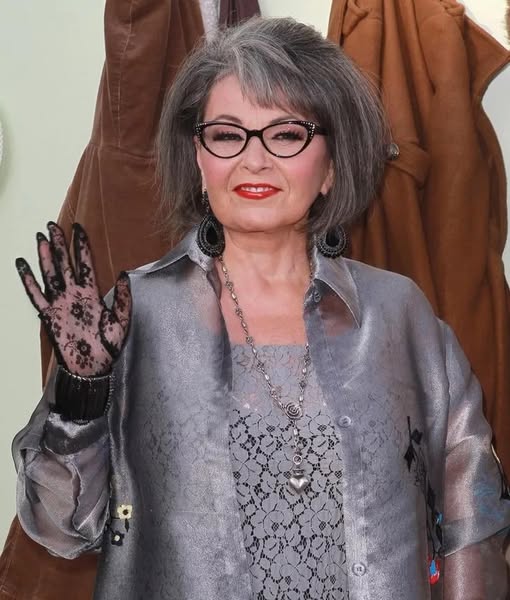Roseanne Barr, a name synonymous with bold humor and unapologetic opinions, has found herself at the center of controversy once again. The comedian and actress recently made headlines after excluding Robert De Niro from her upcoming TV show, a move that has sparked heated debates across social media and within the entertainment industry. The decision, rooted in stark differences over comedic style and social commentary, has become a flashpoint for larger discussions about political correctness, cancel culture, and artistic freedom.

Initially, the pairing of Roseanne Barr and Robert De Niro seemed like a recipe for success. Both are accomplished figures in their respective crafts, with Barr celebrated for her boundary-pushing humor and De Niro revered as one of Hollywood’s finest actors. Yet, despite their reputations, the collaboration quickly unraveled as their opposing views on social issues came to the forefront. Barr, well-known for her anti-political correctness stance, clashed with De Niro, an outspoken advocate for what is often described as “woke” culture—a term used to reflect heightened awareness of social justice and equality.
Reports suggest that tensions between the two began during discussions about the show’s creative direction. Barr, who has never shied away from controversy, reportedly wanted the show to tackle contemporary topics with her signature unfiltered humor. De Niro, on the other hand, is said to have pushed for a more socially sensitive approach, reflecting his commitment to addressing issues like racism, gender inequality, and systemic injustice in ways that align with progressive values. Their creative differences came to a head when Barr allegedly told De Niro, “No woke people allowed here,” effectively ending their collaboration.
The fallout from this decision has ignited a fierce debate about the role of political correctness in entertainment. Supporters of Barr argue that she has the right to maintain creative control over her show and should not be forced to compromise her comedic style to accommodate differing viewpoints. They see her decision as a stand against the increasing influence of “woke” culture, which they believe stifles creativity and censors free expression. For these fans, Barr’s boldness is a refreshing rejection of what they view as an overly sensitive cultural climate.
Critics, however, have taken a very different stance. Many see Barr’s exclusion of De Niro as a rejection of social responsibility, accusing her of prioritizing shock value over meaningful discourse. They argue that comedy, while inherently provocative, should not dismiss the need for sensitivity and awareness in addressing complex social issues. To these critics, De Niro’s push for a more thoughtful approach represented an opportunity to blend humor with progress, a balance they feel Barr has refused to embrace.
The controversy has also reignited discussions about cancel culture—a phenomenon where individuals or entities face backlash and boycotts for perceived offenses. Some view Barr’s actions as an example of cancel culture in reverse, where someone who opposes progressive values effectively “cancels” those who advocate for them. Others see the incident as a microcosm of the larger cultural divide that has been growing in recent years, with debates about free speech, inclusivity, and artistic integrity becoming increasingly polarized.
For Barr, this is not the first time her unapologetic approach has drawn criticism. In 2018, her hit sitcom Roseanne was abruptly canceled following a racially charged tweet, a move that many saw as the ultimate consequence of her refusal to self-censor. While she has since remained a polarizing figure, her ability to attract both controversy and loyal supporters speaks to the enduring appeal of her provocative style.
De Niro, meanwhile, has continued to use his platform to champion progressive causes, often making headlines for his outspoken criticism of political figures and his advocacy for social justice. His removal from Barr’s show has been viewed by some as a missed opportunity to foster dialogue between opposing viewpoints. Others believe it highlights the difficulty of bridging ideological divides in an increasingly fractured cultural landscape.
The broader implications of this clash extend beyond Barr and De Niro. It raises fundamental questions about the balance between artistic expression and social sensitivity in modern media. Should creators have the freedom to craft their work without compromise, even if it risks offending certain audiences? Or does the responsibility of addressing pressing social issues require a level of restraint and awareness that supersedes personal artistic vision? These questions remain at the heart of the ongoing debate.
In many ways, the dispute between Barr and De Niro encapsulates the challenges facing the entertainment industry today. As creators grapple with how to address contentious issues in an era of heightened awareness and accountability, the line between artistic freedom and social responsibility continues to blur. While some see this tension as a hindrance to creativity, others view it as an opportunity for growth, pushing artists to innovate in ways that are both meaningful and inclusive.
Ultimately, Roseanne Barr’s decision to exclude Robert De Niro from her show is more than just a headline-grabbing controversy—it’s a reflection of the cultural crossroads at which society finds itself. Whether one sides with Barr’s defiant humor or De Niro’s progressive ideals, the debate underscores the complexities of navigating creativity, freedom, and accountability in today’s world. As the entertainment industry continues to evolve, moments like this will undoubtedly shape the future of how we tell stories, make art, and connect with audiences.





